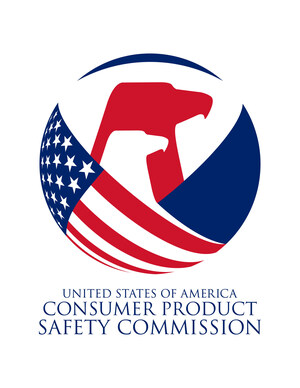
WASHINGTON, March 4, 2020 /PRNewswire/ --
On Sunday, March 8, consumers will turn their clocks forward one hour for Daylight Saving Time. People may lose one hour of sleep, but they will gain daylight for activities. The U.S. Consumer Product Safety Commission (CPSC) wants you to spring into action by adding safety to your daylight saving time changeover.
"The change in time is a perfect opportunity to check and change the batteries in your smoke and carbon monoxide alarms," said CPSC Acting Chairman Bob Adler. "And with the extra daylight, practice a fire escape plan."
The 3 life-saving steps you and your family can take, CPSC explained:
- Check smoke and carbon monoxide (CO) alarms: Check your alarms monthly. If you do not have smoke and CO alarms, now is the time to buy them for your home and install them. A smoke alarm should be on every level of your home, inside each bedroom, and outside sleeping areas. CO alarms should also be placed on every level of your home, and outside sleeping areas.
- Change the batteries: Batteries should be replaced in alarms, unless the alarms have sealed 10-year batteries. Replace your smoke alarms if they are more than 10 years old.
- Practice a fire escape plan: Make sure there are two ways out from each room and a clear path to outside from each exit. Once out, stay out.
CPSC estimates that in 2016, there were about 352,000 residential structure fires, resulting in about 2,400 deaths, 10,400 injuries, and $6.36 billion in property damage.
According to the National Fire Protection Association (NFPA), in 2018, a home fire occurs at the rate of one every 87 seconds. From 2012 to 2016, the NFPA estimated that almost three out of every five home fire deaths resulted from fires in homes with no working smoke alarms.
In addition, the Centers for Disease Control and Prevention (CDC) estimate more than 400 people die in the United States every year from CO poisoning.
Do more than just change your clocks, take the time for safety.
Daylight Savings Time video: https://youtu.be/oWXu-mrlCGo
For more information, visit CPSC.gov.
About U.S. CPSC:
The U.S. Consumer Product Safety Commission is charged with protecting the public from unreasonable risks of injury or death associated with the use of thousands of types of consumer products under the agency's jurisdiction. Deaths, injuries, and property damage from consumer product incidents cost the nation more than $1 trillion annually. CPSC is committed to protecting consumers and families from products that pose a fire, electrical, chemical or mechanical hazard. CPSC's work to ensure the safety of consumer products - such as toys, cribs, power tools, cigarette lighters and household chemicals – contributed to a decline in the rate of deaths and injuries associated with consumer products over the past 40 years.
Federal law bars any person from selling products subject to a publicly-announced voluntary recall by a manufacturer or a mandatory recall ordered by the Commission.
For more lifesaving information, follow us on Facebook, Instagram @USCPSC and Twitter @USCPSC or sign up to receive our e-mail alerts. To report a dangerous product or a product-related injury go online to www.SaferProducts.gov or call CPSC's Hotline at 800-638-2772 or teletypewriter at 301-595-7054 for the hearing impaired.
CPSC Consumer Information Hotline
Contact us at this toll-free number if you have questions about a recall:
800-638-2772 (TTY 301-595-7054)
Times: 8 a.m. – 5:30 p.m. ET; Messages can be left anytime
Call to get product safety and other agency information and to report unsafe products.
Media Contact
Please use the phone numbers below for all media requests.
Phone: 301-504-7908
Spanish: 301-504-7800
Release Number: 20-084
SOURCE U.S. Consumer Product Safety Commission






Share this article